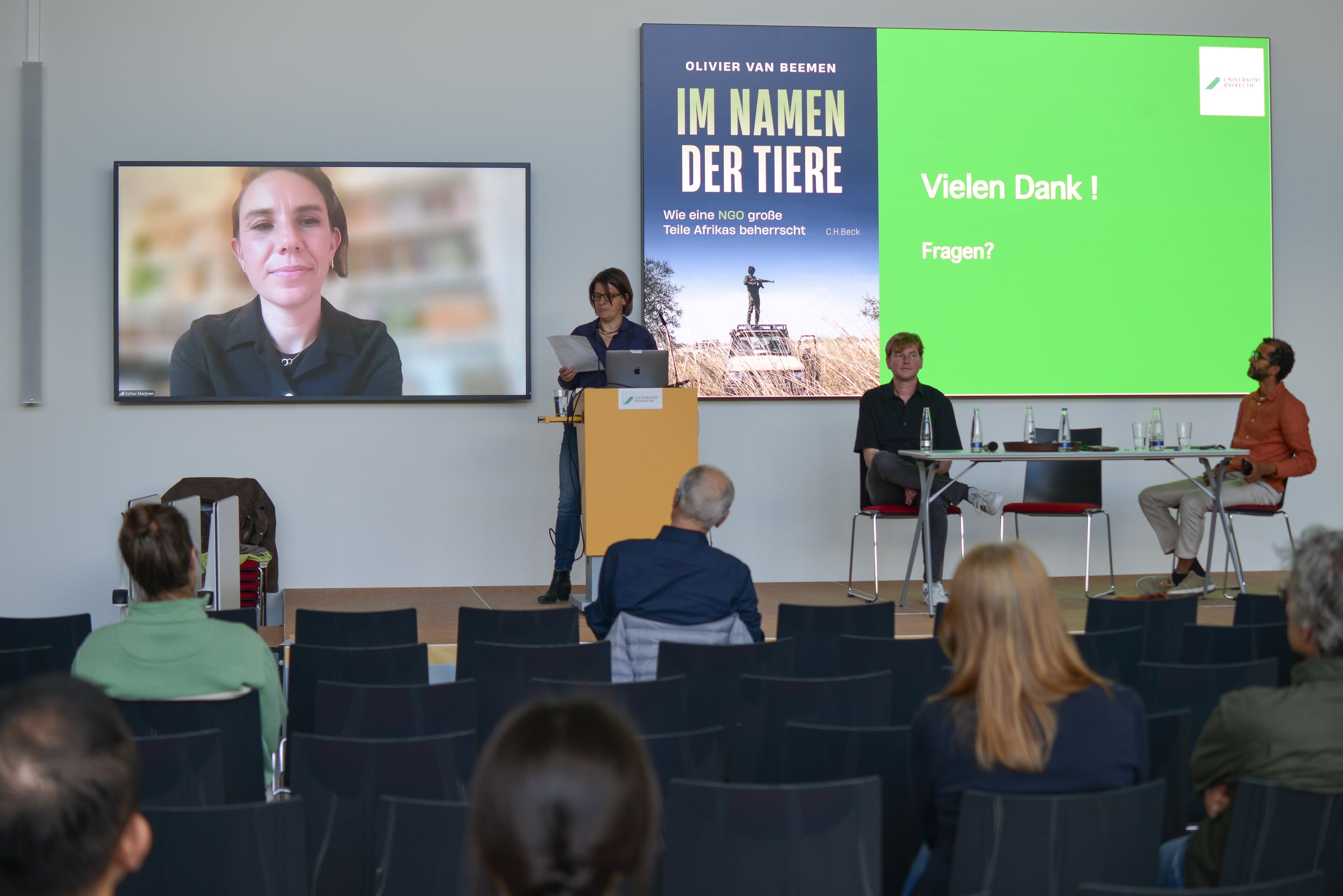News
Authoritarian Dimensions of Conservation in Africa: Olivier van Beemen presents Im Namen der Tiere – Wie eine NGO große Teile Afrikas beherrscht at the University of Bayreuth
20.05.2025
At the invitation of the Africa Multiple Cluster of Excellence, Dutch investigative journalist Olivier van Beemen presented his most recent publication, "Im Namen der Tiere - Wie eine NGO große Teile Afrikas beherrscht" ("In the Name of the Animals how a NGO dominates large parts of Africa"), on Monday, May 19th at the University of Bayreuth. The event, held in the Conference Hall of the recently opened FZA (Forschungsbau Afrika) and streamed via Zoom, brought together scholars, students, and members of the broader public to critically engage with the ethics and politics of conservation in Africa.
In his book, van Beemen examines the governance model and operational practices of the non-governmental organization African Parks, which currently manages 22 protected areas across the African continent. Based on four years of fieldwork and interviews, van Beemen argues that African Parks’ militarized conservation strategies, supported by Western philanthropic funding and tourism revenues, are not only displacing local communities but also contributing to what he terms “green colonialism.” The work foregrounds testimonies of violence, including reports of torture against suspected poachers, and critiques the authoritarian structures that have emerged under the guise of environmental protection.
Van Beemen showed the short promotional film by African Parks featuring Taylor Swift, that played with classic stereotypes of Africa and the (unfulfilled) European fantasies: safaris, sunsets, the Big Five, and an Out of Africa setting. "Nature is being protected, but often at the expense of the people who have lived in harmony with it for generations," van Beemen stated during his reading, underscoring the disjunction between global conservation narratives and the lived experiences of those affected by these interventions.
The reading was followed by a panel discussion moderated by Prof. Dr. Jana Hönke (Chair of Sociology in Africa, University of Bayreuth), with commentaries from Dr. Esther Marijnen (Wageningen University) and Prof. Dr. Stefan Ouma (Economic Geography, University of Bayreuth). The discussion framed van Beemen’s findings within broader debates in political ecology and critical development studies, addressing how international conservation regimes may reproduce colonial logics under contemporary neoliberal and securitized frameworks.
The event sparked a robust Q&A session, with attendees challenging and expanding on the implications of van Beemen’s findings. Questions ranged from the role of the international donor community to possible models for inclusive and ethical conservation. Prof. Hönke’s concluding remarks summarized, “the discussion has to be continued”.













